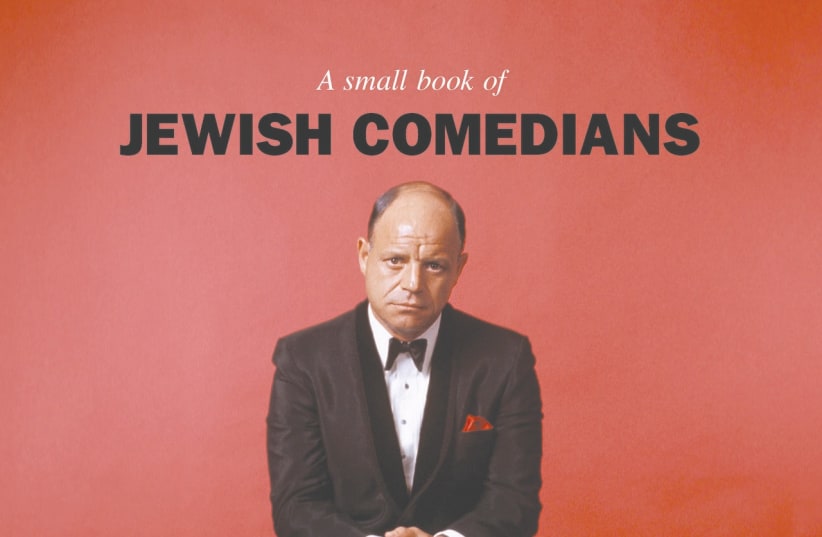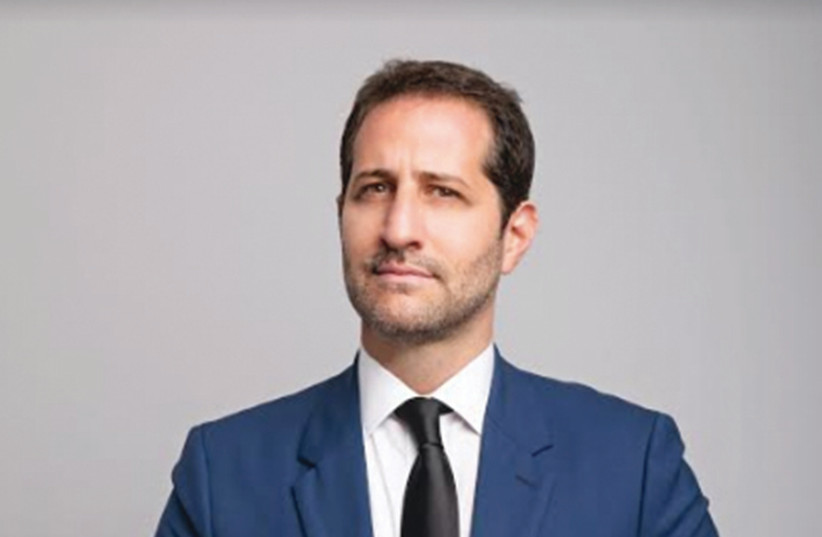What is Jewish humor? Ricky Gervais once asked Jewish comedian Larry David.
“I don’t know what it is,” David replied, “I know that there’s a lot of Jews in comedy, there’s a lot of complaining and being dealt a bad hand – it’s Tevye isn’t it? The weight of the world on your shoulders.”
David’s choice of Shalom Aleichem’s famous protagonist is spot on – Fiddler’s battered hero has become synonymous with the chosen people’s persecution and punishing trials. Jaded Tevye’s famous question to God, “once in a while, can’t you choose someone else?” embodies not just Jews’ need to bemoan their misfortune but also, their unique ability to find humor in their unforgiving plight.
David’s assertion that there are “a lot of Jews in comedy” is also on the mark – in fact, in 1978, Time magazine has estimated that around 80% of professional American comics were Jewish. Comedic icons Sid Caesar, Jack Benny and The Marx Brothers laid the cornerstone of American light entertainment, followed by the likes of Woody Allen, Jackie Mason and Phil Silvers, all the way to Shandling, Seinfeld, Jon Stewart and the politically incorrect Borat.
In celebration of Jews’ unparalleled contribution to American, and consequently, world culture, Reel Art Press has released The Small Book of Jewish Comedians by Bobby Slayton and Tony Nourmand. Introduced by stand-up comedian Slayton, it includes stylish portraits of the famous humorists and some of the finest and funniest jokes ever delivered.
Published in conjunction with the exhibition of Jewish Comedians at La Térmica Cultural Center in Málaga, Spain in November 2021, it features comedians who perfected their craft in vaudeville, Las Vegas, film, television and the Borscht Belt – often referred to as the Jewish Alps – in New York’s Catskill Mountains.
The long list of comedians’ names includes the stars and writers of the most popular film, theater and TV shows ever aired. It starts with Alan King, Albert Brooks and Andy Kaufman, and continues with Bill Maher, Billy Crystal, Carl Reiner, Danny Kaye and Don Rickles, all the way to Shandling, Mason, Seinfeld and Sacha Baron Cohen. Other notable names include Jack Benny, Milton Berle, Mel Brooks, Lenny Bruce, George Burns, Rodney Dangerfield, Larry David, Roseanne Barr, Jerry Lewis, Joan Rivers and Neil Simon among many others.
Next to every comedian is a selection of their humorous gems, some of which have become as famous as their creator. Take, for example, Groucho Marx’s classic line “I never forget a face but in your case, I’ll be glad to make an exception,”or George Burns’s question “Do you know what it means to come home at night to a woman who’ll give you a little love, a little affection, a little tenderness?” and his wry reply “It means you’re in the wrong house, that’s what it means.”
There are Jackie Mason’s observations that “if an Englishman gets run down by a truck he apologizes to the truck,” and that “a Jew never laughs without looking at his wife for approval.” Jerry Lewis thinks “You might as well like yourself; just think about all the time you’re gonna spend with you,” while Sacha Baron Cohen flatly asks the instantly recognizable “is it cos I is black?”
There are wife jokes, philosophical humor, a lot of self-reflection and distinctly quirky takes that made this reader laugh out loud such as Groucho Marx’s “Outside of a dog, a book is a man’s best friend, inside of a dog, it’s too dark to read.”
There are humorous, often intriguing insights into relationships, married life and the human condition – Eddie Cantor, for example, describes a wedding as “a funeral where you smell your own flowers” and marriage as “an attempt to solve problems together which you didn’t even have when you were on your own.” To Ed Wynn: “a bachelor is a man who never makes the same mistake once” while Freddie Roman tells the story of an elderly couple on their honeymoon – the wife goes to bed first and yells downstairs to her new husband, would you like to come upstairs and make love? he calls back “I can’t do both!”
“While all the comics weren’t Jewish,” Slayton writes in his introductions, “it certainly seemed that they dominated the field – I remember seeing so many of them, Alan King (Irwin Kniberg), Joan Rivers (Joan Molinsky), Woody Allen (Allen Stewart Konigsberg) and dozens more. Even as a small child, three of my favorite kiddie shows in New York were hosted by Paul Winchell (Paul Wilchinsky), Shari Lewis (Phyllis Naomi Hurwitz) and the legendary Soupy Sales (Milton Supman). Every day after school, if my mother wasn’t yelling at me to shut off ‘the idiot box’ and go outside to play, I’d be watching The Three Stooges (all Jews coincidentally). A few years later when I was old enough to stay up later on weekends, there were reruns of The Colgate Comedy Hour with Jerry Lewis (Joseph Levitch), Your Show of Shows with Sid Caesar (Isaac Sidney Caesar) and, my favorite, You Bet Your Life with Groucho Marx (Julius Henry Marx). Surprise! All Jewish!”
As you flip through the pages you cannot help but laugh at the jokes and ponder over the pivotal role Jewish humor has played within American culture over the years.

